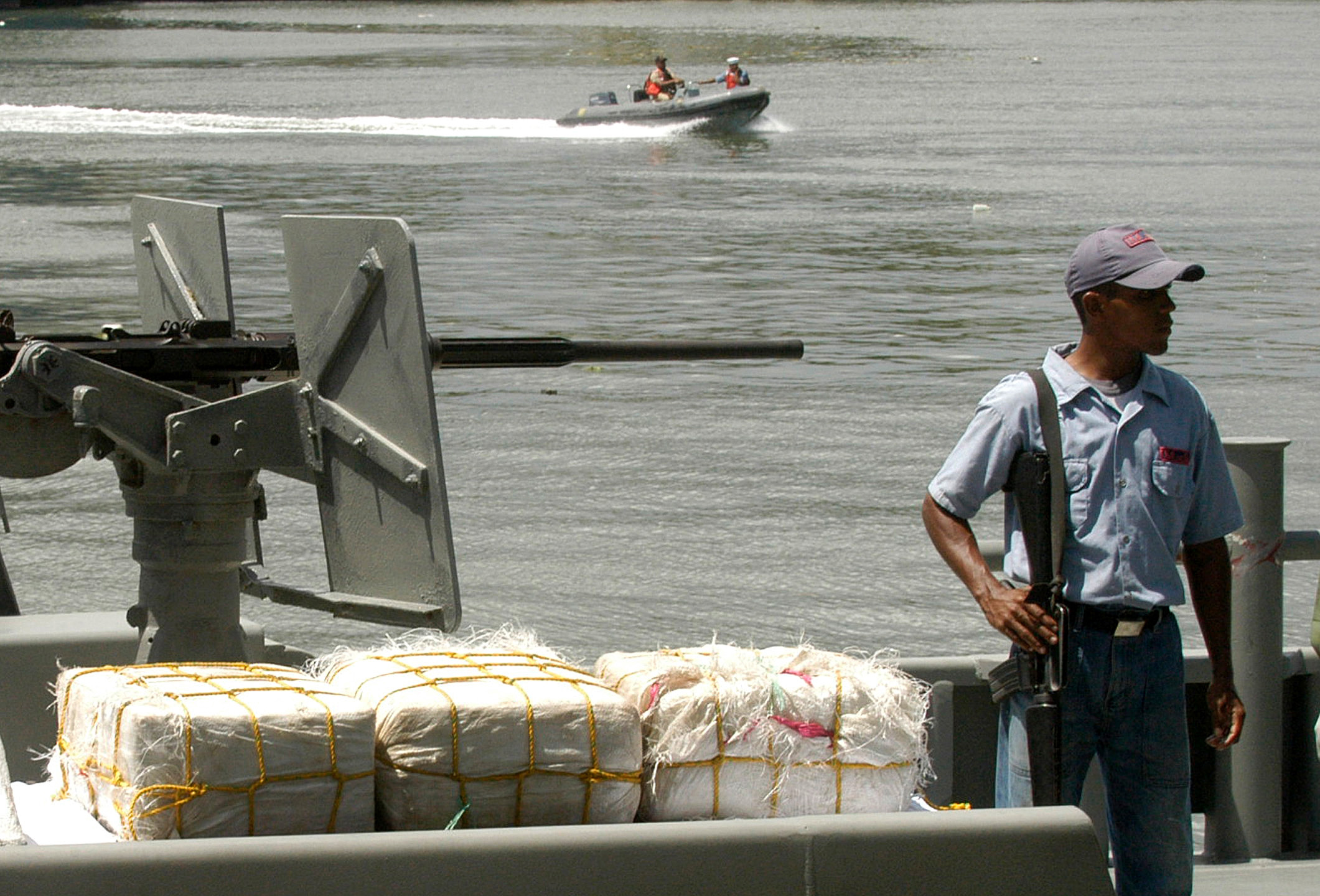UPDATE: Authorities in the Dominican Republic have announced a groundbreaking seizure of 377 packages of cocaine from a speedboat destroyed by the U.S. Navy in a historic joint anti-narcotics operation. This significant event marks the first collaboration between the two nations in Caribbean waters, with the vessel allegedly carrying 1,000 kilograms of cocaine when intercepted approximately 80 nautical miles south of Isla Beata.
Why It Matters: This operation comes as the U.S. grapples with a severe opioid crisis, which has resulted in approximately 105,000 drug overdose deaths in 2023 alone, according to the National Institute on Drug Abuse. The White House has been vocal about intensifying efforts to combat drug smuggling, emphasizing the critical need for cooperative international strategies.
Details: The Dominican Republic’s National Directorate for Drug Control confirmed that the intercepted speedboat was using the Caribbean nation as a transit point for drug trafficking to the U.S. This operation is a significant milestone in bilateral cooperation against drug trafficking, showcasing a united front against narcotics in the region.
In August 2023, the U.S. deployed a flotilla of eight warships and a submarine to enhance counter-narcotics missions in the southern Caribbean. This initiative, characterized by the Trump administration as an essential effort to curb drug trafficking, has reportedly resulted in the destruction of three drug-laden vessels, leading to more than a dozen fatalities aboard those boats.
Context: U.S. officials have linked at least two of the destroyed vessels to Venezuela, whose president, Nicolás Maduro, is often labeled as leading the so-called “Cartel of the Suns.” The recent operation marks the first confirmed recovery of drug cargo following the destruction of a vessel, providing tangible proof of the mission’s objectives.
Next Steps: As this operation unfolds, a congressional resolution introduced by Democratic senators aims to halt further military strikes against drug trafficking vessels. This resolution will undergo legislative review and potential voting, raising questions about the future of military involvement in anti-drug efforts. Meanwhile, the Trump administration appears poised to expand its Caribbean anti-narcotics mission.
“This is the first time in history that the United States and the Dominican Republic carry out a joint operation against narco-terrorism in the Caribbean,” stated a representative from the National Directorate for Drug Control.
President Donald Trump took to Truth Social to affirm the operation, stating, “On my orders, the Secretary of War ordered a lethal kinetic strike on a vessel affiliated with a Designated Terrorist Organization conducting narcotrafficking.” He emphasized the strike’s necessity in combating the trafficking of illicit narcotics and protecting Americans from drug-related violence.
As the situation develops, it’s crucial for the public to stay informed about the implications of these operations on both national security and human rights, especially amidst rising concerns from organizations like Human Rights Watch, which have criticized the strikes as potential extrajudicial killings.
For now, all eyes remain on the ongoing efforts to tackle drug trafficking in the Caribbean and the potential consequences of escalating military actions.








































































